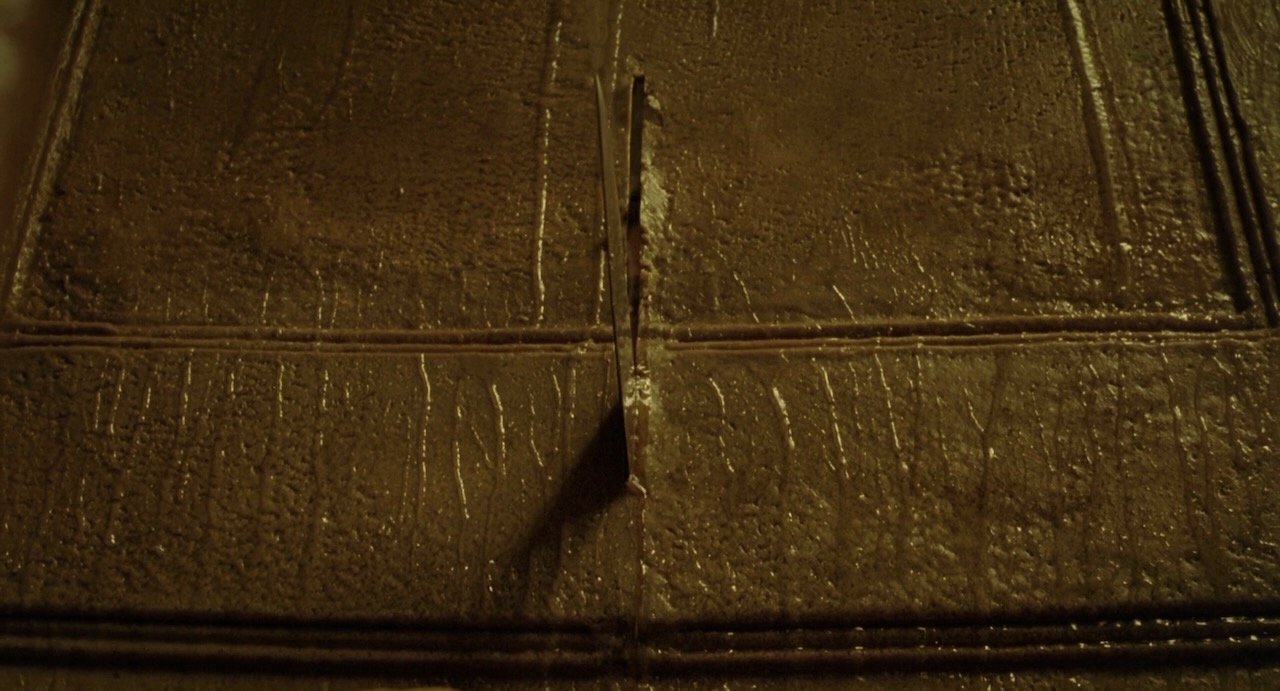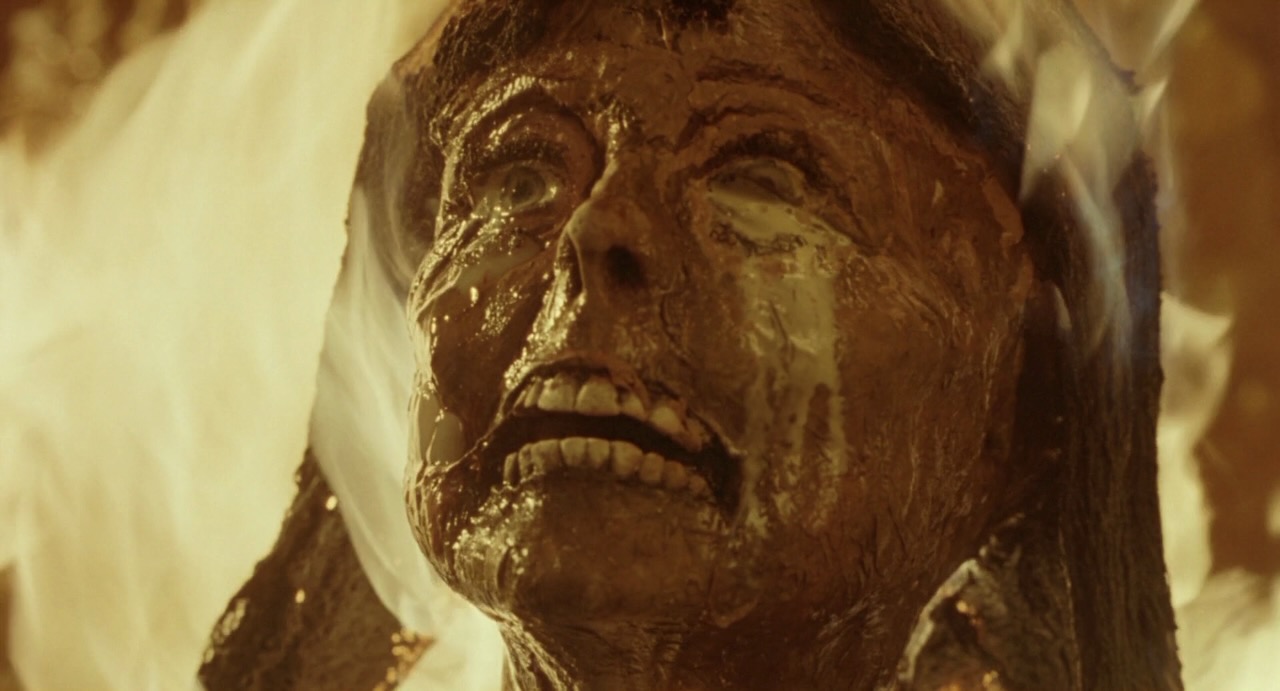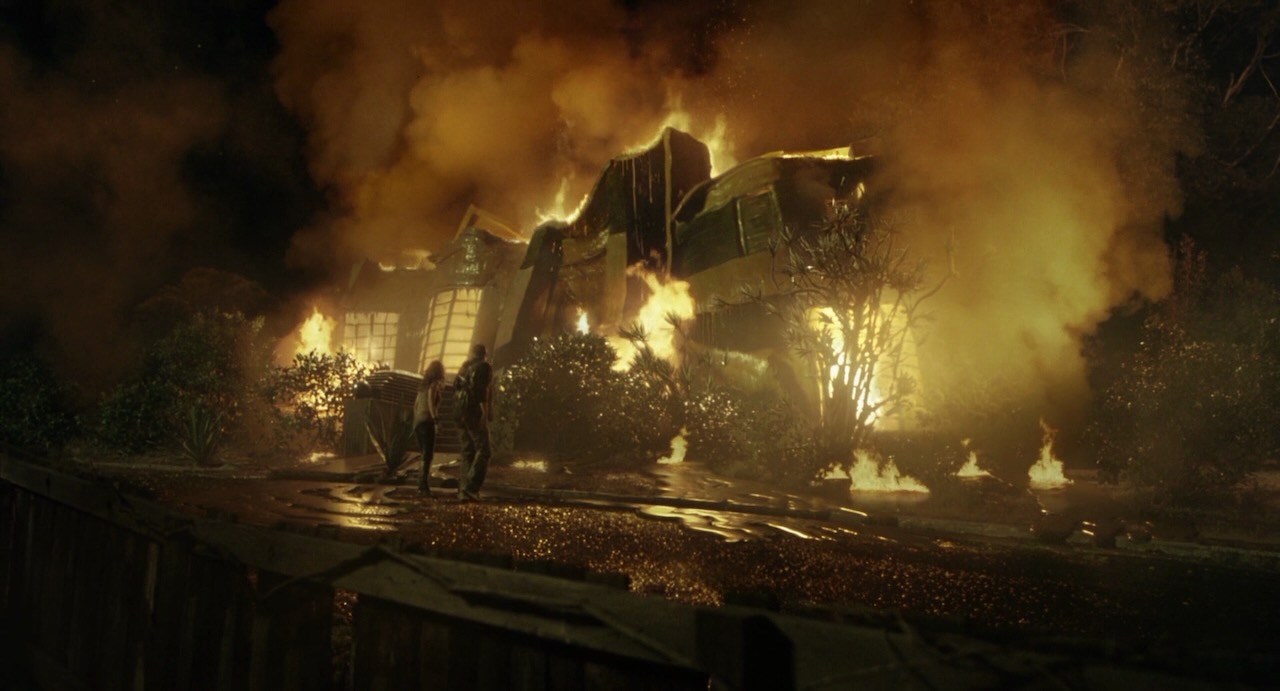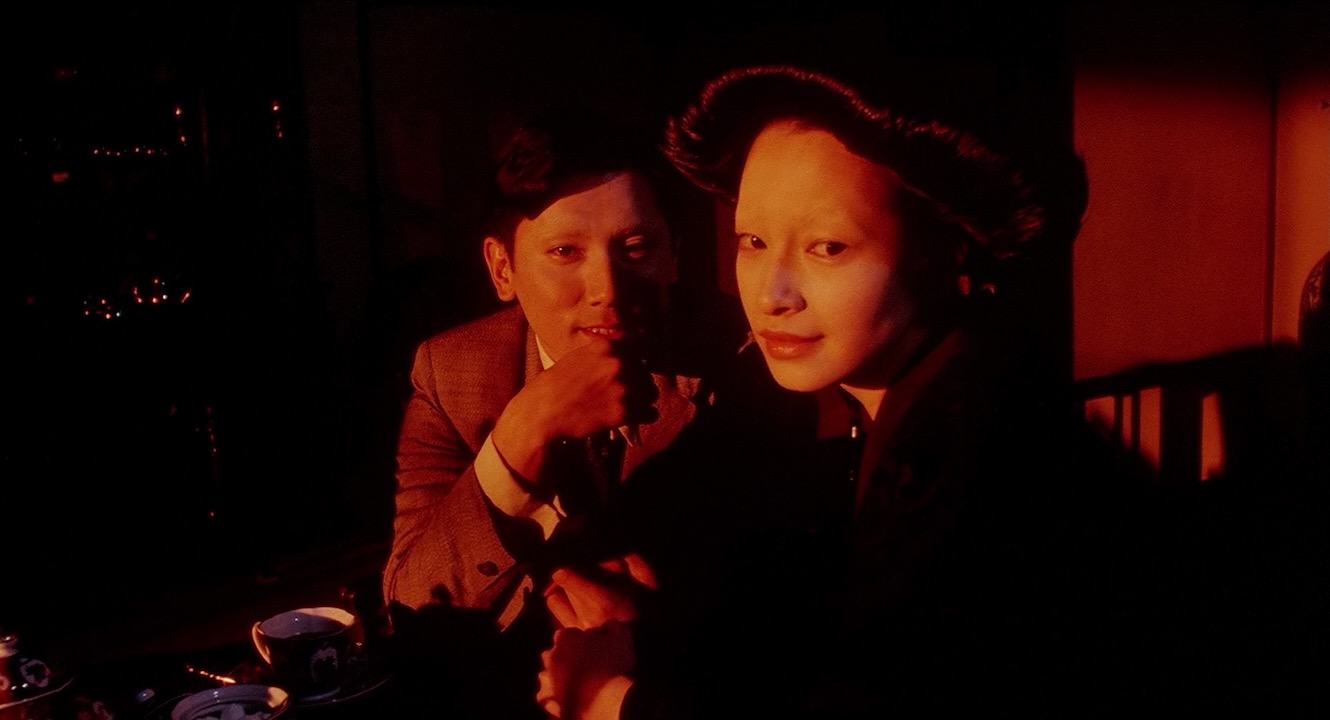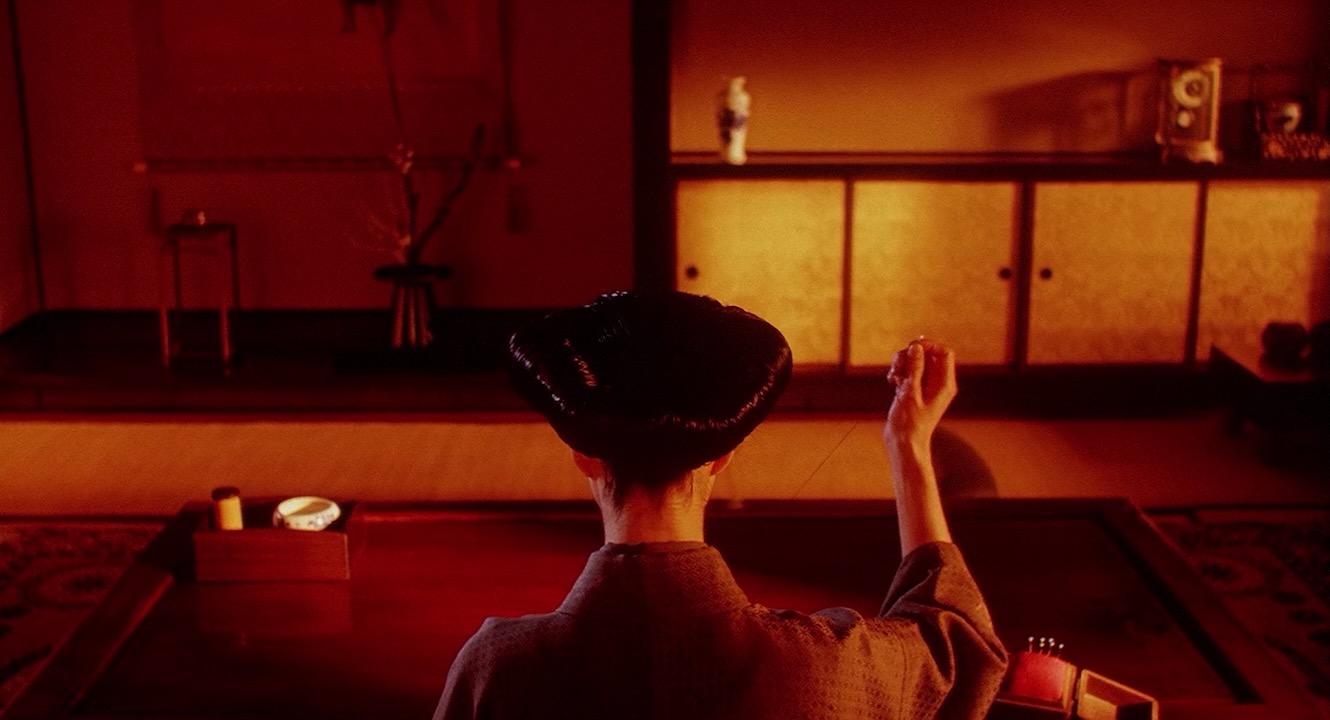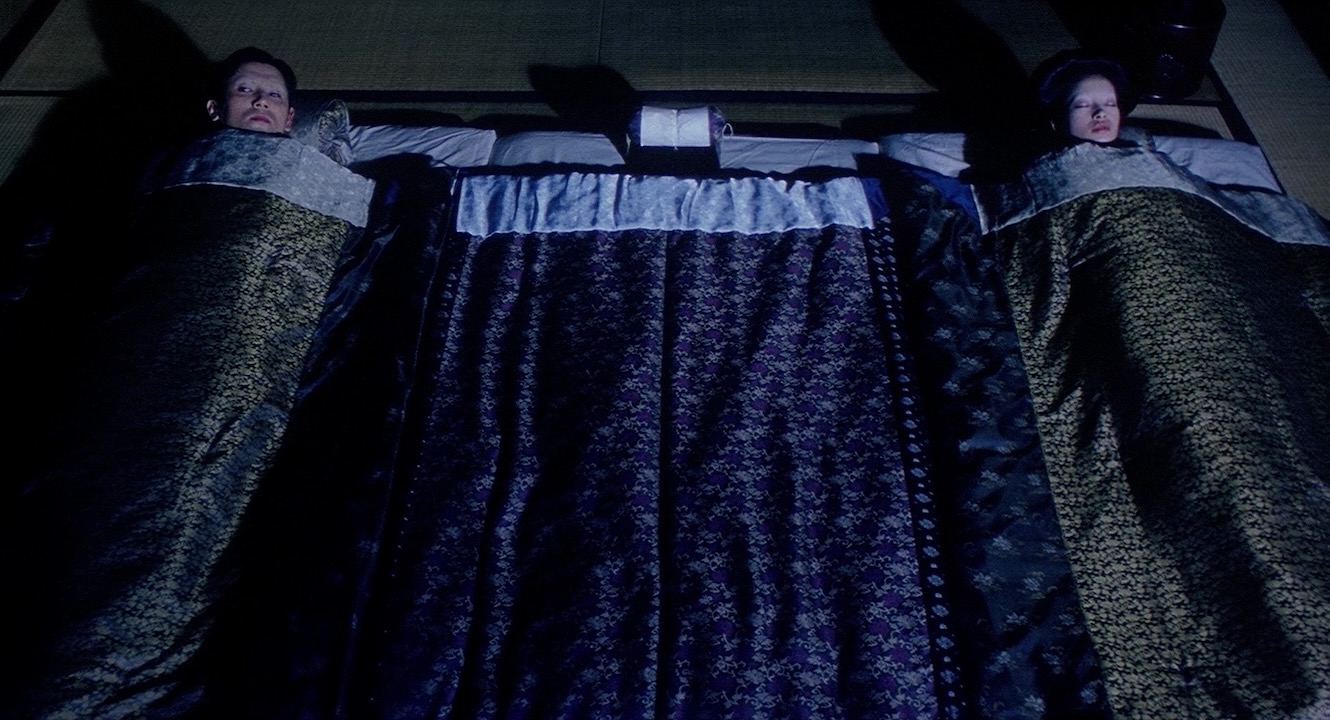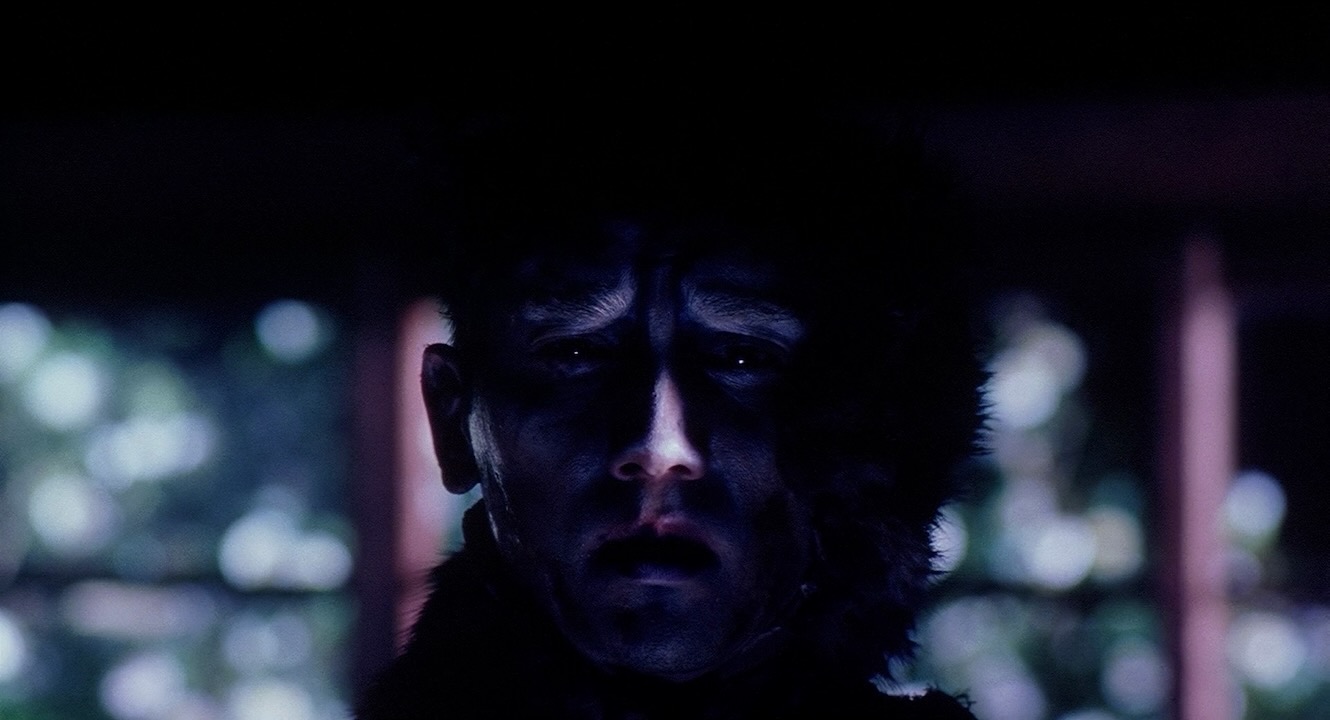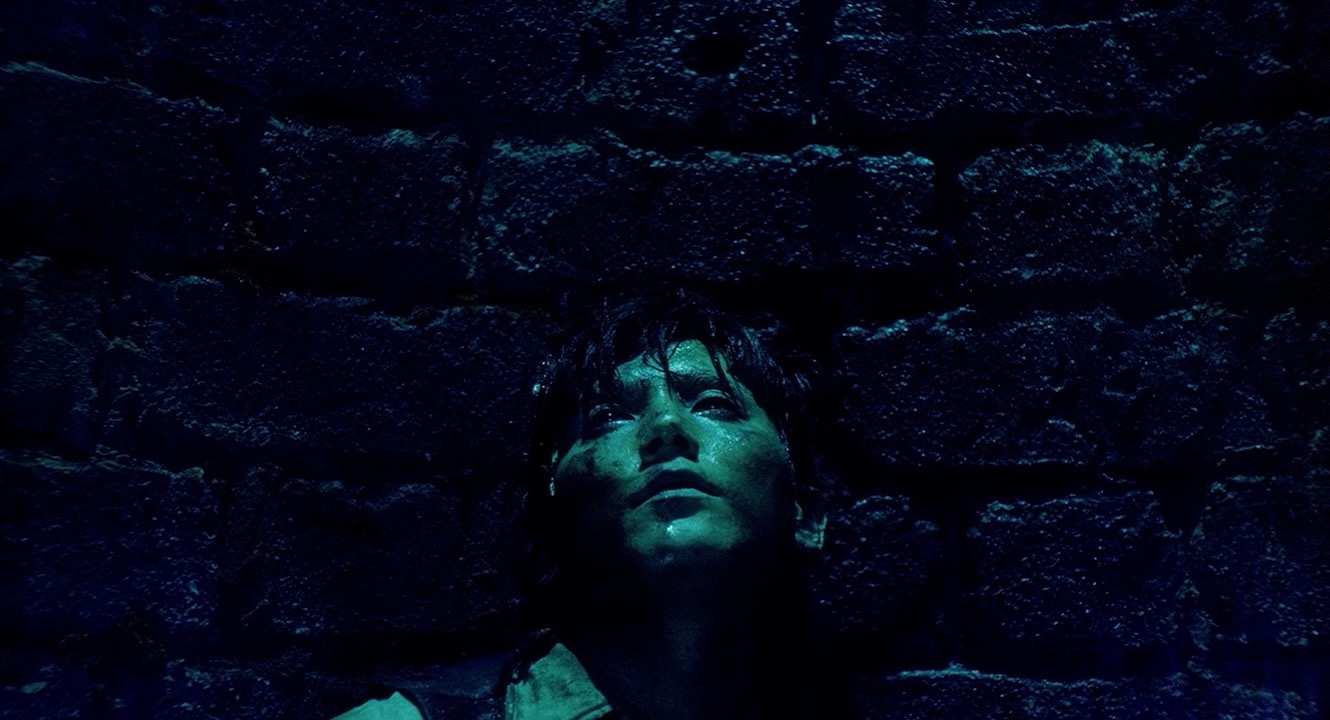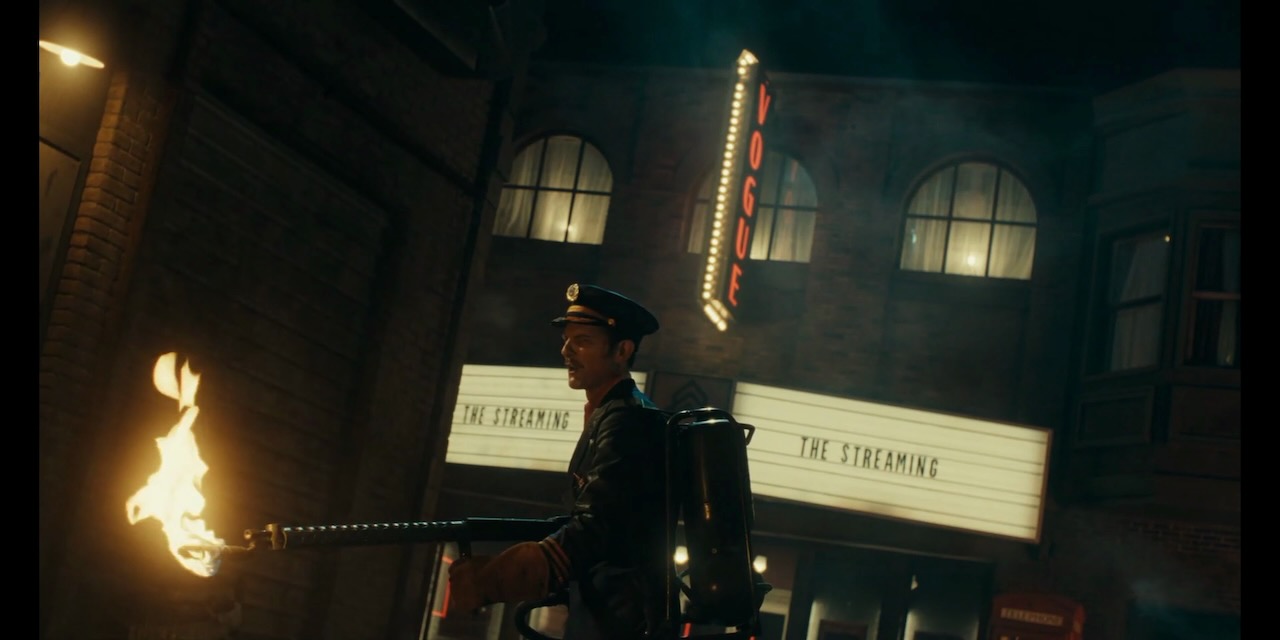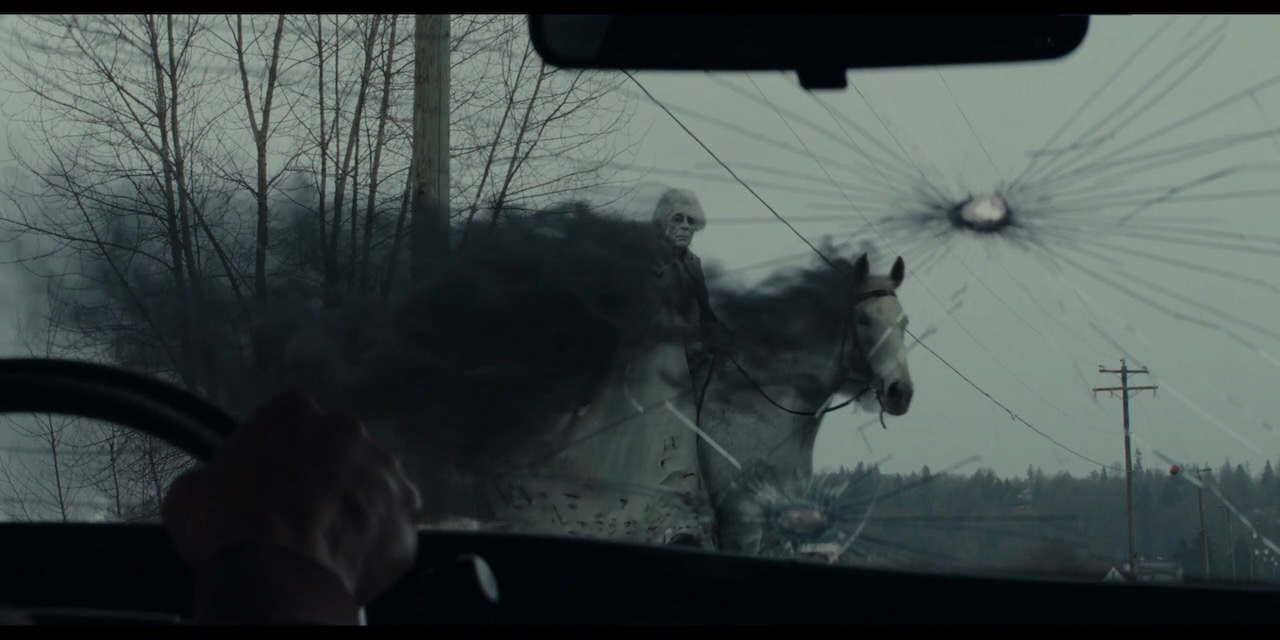“There’s a problem with your films. I don’t understand it. It’s not clear at all.”
A Belgian movie, watched for the Shadowplay thing, but I opted to cover Ferat Vampire instead because this one seemed… more difficult. As the red curtains open and the film begins, diorama-like, full of seared memories and dream logic, I tell myself “don’t call it Lynchian, that’s what everyone has said about it,” but Goodreads tell me that Smolders wrote a book about Eraserhead and Vimeo says he made a video called Lynch Empire, so nevermind, it’s Lynchian. This is his only feature to date, in a 35-year career of shorts.

Kids walk towards the camera, a bug is pinned to the wall, twin Poltergeist II preachers are flashback-puppeteers, causing a wolfman to kill the girl to big choral music, like hymns with some Thin Red Line mixed in. The girl lives again, only to be killed with scissors. Then the doctor, who is viewing these memory-plays by peering into our suit-wearing protagonist’s ear, says he’s fantasizing and he never had a sister, let alone a murdered one, and he needs to chill out.

Our man has an a static Crispin Glovery intensity, and a facial birthmark so we can conveniently tell who plays him in flashback, living in a city under near-permanent eclipse (the second time in 24 hours I’ve thought of Dark City). He works as the bug guy in a museum – a zoo worker in a room full of film cans – and we’ve seen multiple sets of identical twins at this point, making this the second movie this year after the Mandico short to be strongly reminiscent of A Zed & Two Noughts.


Enough with all the comparisons to other films – we go into overdrive when a black woman (the museum security guard) appears, sick and naked and pregnant, in his bed. We hear her thoughts, untranslated (at least on my DVD), while he deals with his stress by watching anthropological films of a beardy colonialist white man (his father, and the museum director). She make him promise not to leave, he immediately runs into the hallway while she gets killed by the ghost of his dead sister, then turns into a cocoon that births a white woman who goes to the museum, naked but for a leopard-skin coat, and murders a taxidermist, the sun comes out and everyone gets annoyed, and now the allusions/symbolism are out of my league.


Anyway, the closeup of leaf insects are great. This would seem to be a cult movie in need of a cult. Smolders was reportedly born in Kinshasa, says in the extras that his film’s vision of Africa is “a fantasized territory based on stories written by … large museums which … fanatically classified a universe that they didn’t understand.” He also says that the story’s logic is based on the rule that “what happens to a character is exactly what he most fears, yet desires at the same time.”
